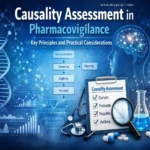This blog focuses on the following topics:
- Understanding ICSR Management
- ICSR Management and its Role in Pharmacovigilance
- Regulatory requirement of ICSR
Table of Contents
Definition
ICSR – Individual Case Safety Report(s)
Individual Case: An Individual Case is the information provided by a primary source to describe suspected adverse reaction(s)/suspected unexpected serious adverse reactions related to the administration of one or more medicinal products/investigational medicinal products to an individual patient at a particular point of time.
Individual Case Safety Report (ICSR): An Individual Case Safety Report is a document providing the most complete information related to an Individual Case at a certain point of time. An ICSR may also b e referred to as Safety Report.
ICSR Management in pharmacovigilance
- ICSR case processing is a primary role in whole Pharmacovigilance process.
- Each report treated as an individual case.
- Reports that are experienced by individuals are taken into consideration with ICSR.
- The reported case does not involve an individual, it does not fall within the scope of Individual Case Safety Reports (ICSRs).
- Individual Case Safety Reports (ICSR) play a key role in assessing the risk-benefit profile of a given medicinal product.
- ICSRs are time sensitive and should be filed as soon as a safety issue has been identified.
- ICSR is a fundamental and important database source for all over pharmacovigilance.
ICSRs are a type of report that can be submitted on behalf of an individuals as opposed to a group; these reports are stored in VigiBase which was created by the UMC (United Medical Consortium).
“ICSR processing is not just paperwork; it’s a commitment to patient safety. Each case handled diligently is a step toward a healthier, safer future, ensuring medications benefit without harm. The importance lies not just in processing, but in safeguarding lives and building trust in healthcare.”
A Valid ICSR
To build or consider a valid ICSR report, there are four mandatory elements is to consider:
- Information about the reporter
- Information about the diagnosed patient/ individual
- A suspected drug(s) to have caused effect (To learn more the differences of suspected and concomitant drugs)
- An adverse event(s) occurred (To learn deeper about adverse events and Adverse drug reactions)
If one or more of these four elements is missing, the case is not a valid AE report. A report may be nullified if it lacks the minimum information.
Regulatory timelines
The regulatory submission of ICSRs vary based on seriousness and country specific regulations between 7, 15, 60 & 90 days.
Conclusion
This concise and highly focused blog delves into the essence of ICSR (Individual Case Safety Report) and its pivotal role within pharmacovigilance.
It elaborates on the intricate aspects of ICSR management within a sophisticated framework.
Readers are encouraged to put your valuable insights about ICSR management presented here. Feel free share with your circle.
References:
FAQ:
Can you please explain the term “ICSR”?
Define ICSR in pharmacovigilance?
Case – A valid case
Safety – To ensure the safety of the drug
Report – To facilitate the submission of the report to authorities
What are the four (4) minimum criteria for valid ICSR?
1. A reporter
2. Drug administered/ diagnosed patient/ an individual
3. A suspected drug(s)
4. An Adverse Event(s)
If one or more of these four elements is missing, the case is not a valid AE report.







Leave a Reply